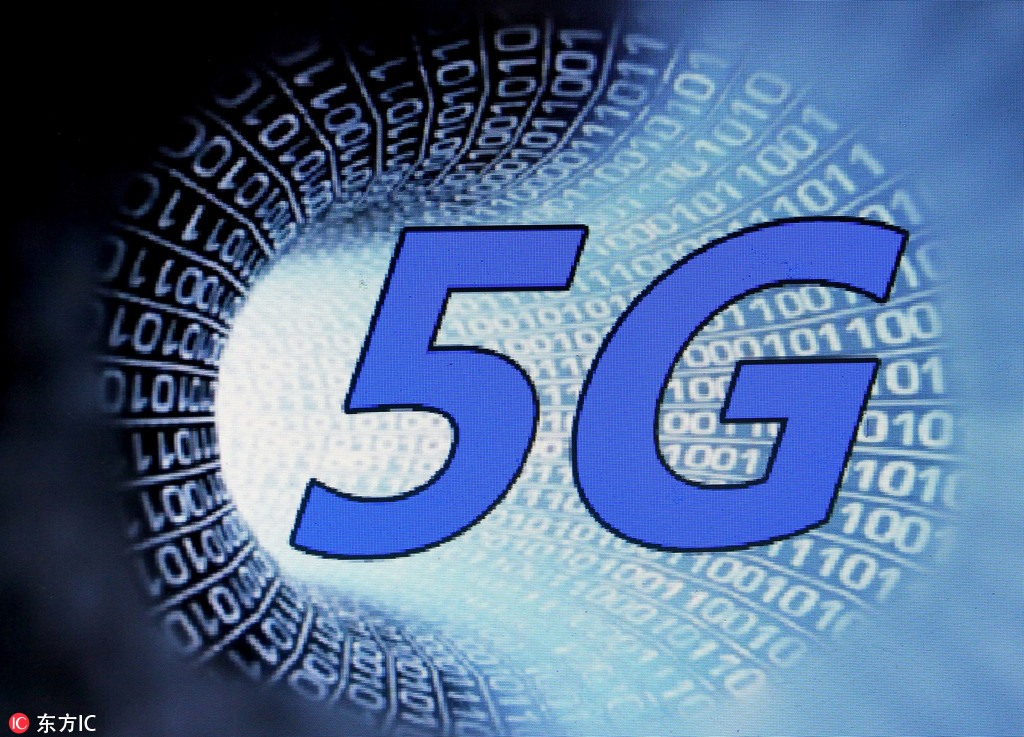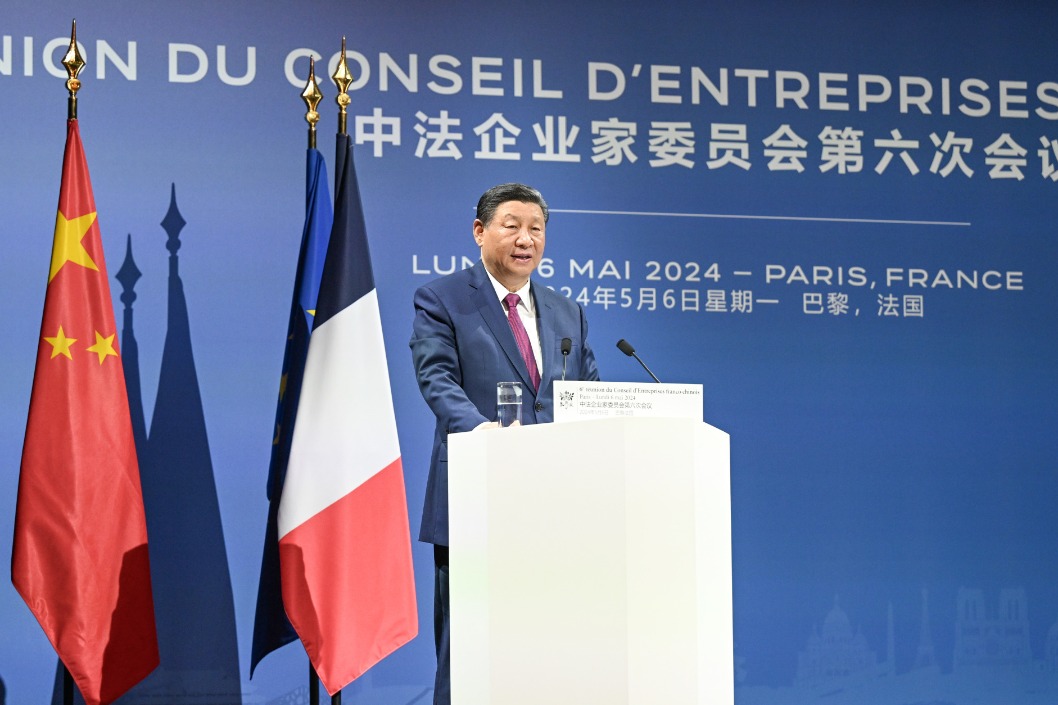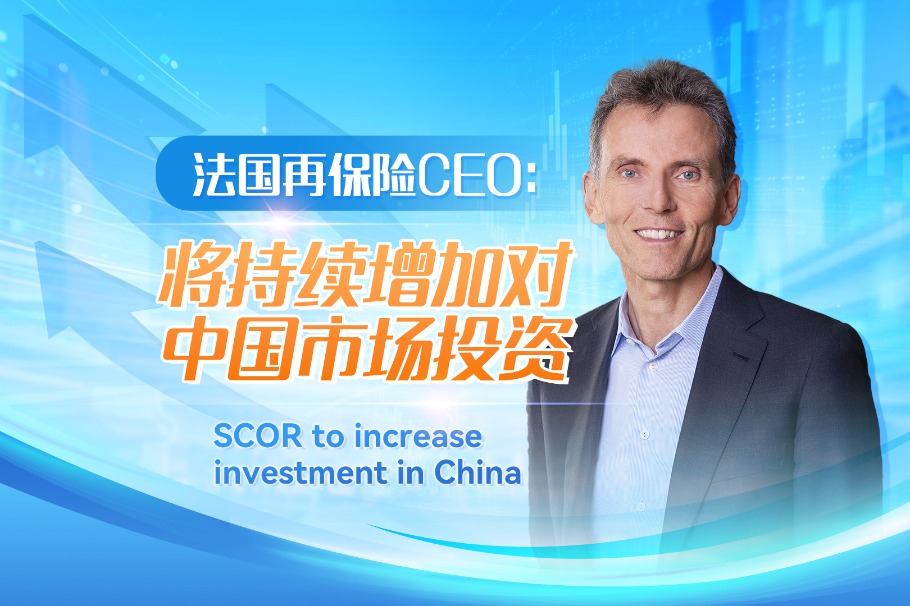UK cyber intelligence expert condemns "hysteria" over Chinese tech
By Harvey Morris | China Daily Global | Updated: 2019-02-25 00:16

China has found an unexpected ally in a controversy over cybersecurity that has targeted telecoms giant Huawei and its participation in Western wireless networks.
Robert Hannigan, former head of the United Kingdom's GCHQ cyberintelligence agency and a leading authority on cybersecurity, has condemned what he called "growing hysteria" over Chinese tech.
Writing in the Financial Times, Hannigan said that the agency he headed from 2014 to 2017 had never found evidence of malicious Chinese state cyberactivity through Huawei.
His commentary came amid warnings from United States Secretary of State Mike Pompeo that European countries using Huawei technology could damage their relations with the US.
Pompeo's statement came as part of a campaign against Huawei by the Trump administration that has included indictments accusing the company's employees, executives and founder of lying about an alleged scheme to steal trade secrets. Huawei has denied all the charges against it.
Hannigan wrote that the chorus of voices calling for Chinese companies to be frozen out of telecoms in Western countries, especially future 5G networks, focused on concerns ranging from cyberespionage to the dominance of the Chinese technology sector and the direction of China's foreign policy.
"All this is lumped together into a perceived cyber threat, which can only be met by a blanket ban," according to the former spy chief. "But these arguments are short on technical understanding of cybersecurity and the complexities of 5G architecture."
He acknowledged that the concerns expressed were probably mirrored in China's own worries about risks that might be involved in dealing with the West.
Hannigan stepped down early for family reasons and now advises the private sector on cyber issues. A few days after his article was published, his former employer was reported to have reached its own conclusion that the panic over Huawei was overblown.
An article, again in the Financial Times, quoted unnamed sources as saying British intelligence had concluded that it was possible to limit any security risks from using Huawei equipment in 5G networks.
The newspaper described the yet to be published finding as a serious blow to US efforts to persuade allies to ban the Chinese company from high-speed telecommunications systems.
In a rare public statement, the head of the UK's foreign intelligence agency MI6, meanwhile said the Huawei issue was more complicated than instituting a blanket ban on the Chinese supplier.
"I think it is a more complicated issue than 'in or out'," Alex Younger told reporters before an international security conference in Munich. "What I want is a proper conversation about this because it's not inherently desirable that any piece of significant national infrastructure is provided from a monopoly supplier."
The remarks from UK officials, current and former, underline a more relaxed attitude to China's growing telecoms role than that shown by some of its closest allies.
The US has restricted federal spending on Huawei equipment. Canada meanwhile is reviewing whether such equipment presents a serious security threat. Australia and New Zealand have blocked Huawei from supplying equipment for future 5G broadband networks.
These four countries, together with the UK, constitute the so-called Five Eyes allies, whose spy agencies share intelligence information. When the heads of the five agencies met in Canada last year to discuss a perceived cyber threat from China, all were reported to have agreed that an outright ban in many countries was impractical.
In his Financial Times article, Hannigan said the UK was uniquely placed to evaluate Huawei's presence in the telecoms sector. He said officials were right to highlight any shortcomings linked to Huawei's attitude to cybersecurity but that such failings were not unqiue to the Chinese company.
Linking the Huawei controversy with President Trump's overall trade friction with China, Hannigan wrote: "Whether or not we sympathise with the Trump administration's ambitions on trade, this again has nothing to do with telephony or cyber."
The US, however, has continued to step up the pressure, including last weekend when Vice-President Mike Pence urged allies at the Munich conference to turn their backs on the company.
He repeated the charge that Chinese law requires Huawei to provide the government in Beijing with all data passing through its systems and equipment. Pence said the US was calling on all its security partners to be vigilant and to reject any threat to the integrity of their communications technology or national security systems.
That contrasted with Hannigan's view that assertions that any Chinese technology in any part of a 5G network represents an unacceptable risk were nonsense.
He suggested the UK and other European countries should base decisions on Chinese involvement in future telecoms projects on technical expertise and a rational assessment of risk, rather than political fashion or trade wars.
"We should accept that China will be a global tech power in the future and start managing the risk now, rather than pretending the west can sit out China's technological rise."
























